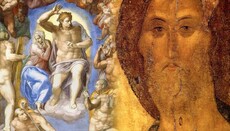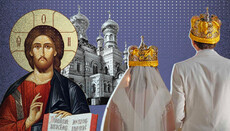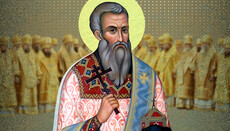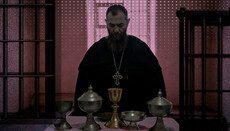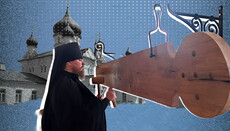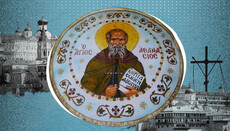Stories from the Early Church: Bishops and Deacons
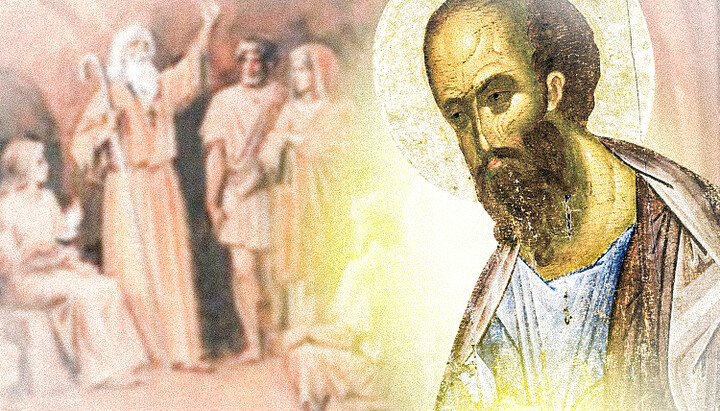
Bishops and deacons were figures closely tied to specific communities, unlike apostles and prophets. What were their roles, and how did these institutions develop in the early Church?
Deacons
In the first Christian community in Jerusalem, the apostles essentially performed the functions of bishops, so there was no need to elect others from among the faithful for such roles. The first official positions established within the community were those of deacons, as described in Acts 6. Interestingly, this need arose from a conflict over material resources: “In those days, when the number of disciples was increasing, the Hellenistic Jews among them complained against the Hebraic Jews because their widows were being overlooked in the daily distribution of food” (Acts 6:1).
This passage gives us valuable insight into the life of the early Jerusalem community.
First, helping the needy and meeting their material needs was one of the earliest and most essential activities of the Christian community. It was a direct expression of the commandment to love one’s neighbor. Everyone cared for everyone else, ensuring that no one who believed in Christ lacked necessities. Other communal activities included prayer – especially the celebration of the Eucharist – and preaching the Gospel to all.
Second, this aid was provided daily, which suggests that the assistance mostly consisted of food and other everyday needs. Widows were among the most socially vulnerable. In antiquity (and not only then), men were the primary breadwinners. If a woman's husband died and she had no grown sons, she and her children often lived in poverty. Relatives might help, but since they typically had large families too, such help was often insufficient. That the Christian community took responsibility for feeding widows shows that it was seen as a true family where everyone supported one another.
Third, receiving the Holy Spirit and joining the Christian family did not eliminate human passions. Some widows felt they were being unfairly treated, and they voiced their grievances openly. Those distributing food may indeed have practiced subtle discrimination. “Hebraic Jews” here refers to the native residents of Jerusalem, while “Hellenists” were also Jews (sometimes proselytes) from other parts of the Roman Empire who spoke Greek. Giving more to “one of your own” than to an outsider is a very human trait. It’s worth noting that Scripture does not conceal these tensions – it presents the reality as it was.
Most likely, the aggrieved widows brought their complaints directly to the apostles. The apostles could have personally addressed the issue, but that would have drawn them away from their primary mission of preaching. So they made another choice:
“The Twelve gathered all the disciples together and said, ‘It would not be right for us to neglect the ministry of the word of God in order to wait on tables. Brothers and sisters, choose seven men from among you who are known to be full of the Spirit and wisdom. We will turn this responsibility over to them and will give our attention to prayer and the ministry of the word’” (Acts 6:2–4).
In today’s language, the apostles delegated authority. Later on, bishops – considered the apostles’ successors, though this isn’t entirely accurate (see previous publications) – would take on all these responsibilities themselves, combining liturgical, teaching, financial, and administrative duties. Whether that was justified is a separate question, but in the early Church, things were different.
This is how the first deacons came into being. The Greek word διάκονος means “servant.”
“This proposal pleased the whole group. They chose Stephen, a man full of faith and of the Holy Spirit; also Philip, Prochorus, Nicanor, Timon, Parmenas, and Nicolas from Antioch, a convert to Judaism. They presented these men to the apostles, who prayed and laid their hands on them” (Acts 6:5–6).
Note once again: the deacons were elected by the believers and ordained by the apostles. Today, this process is handled entirely by the clergy.
The appointment of officials responsible for assisting the poor was not unique to Christianity. Jewish synagogues had similar roles, often separating those who collected alms from those who distributed them. In the Christian community, however, a deacon’s duties were broader. A deacon was the bishop’s right hand: assisting in the Eucharist, sometimes preaching the Gospel (as in the case of the protomartyr Stephen), and caring for both material and spiritual needs of the community. For example, deacons were to visit the sick and report to the bishop so they could receive the Holy Mysteries – or, in some cases, the deacon would bring the Eucharist himself.
Bishops
The term “bishop” (ἐπίσκοπος) translates as “overseer” or “watcher” – a title common in ancient private associations. In modern terms, we might say “elder” or “leader.” Indeed, in the early Church, bishops were often also called presbyters (πρεσβύτερος), meaning “elder” or “community head.” In Scripture, these terms are often used interchangeably, indicating that the bishop or presbyter oversaw doctrine and community leadership.
When St. Paul was traveling to Rome, he chose not to stop in Ephesus but summoned “the elders of the church” (Acts 20:17) to meet him in Miletus. In his address, he refers to them as bishops:
“Keep watch over yourselves and all the flock of which the Holy Spirit has made you overseers (bishops). Be shepherds of the church of God, which he bought with his own blood” (Acts 20:28).
Today, bishops hold virtually all ecclesiastical authority, which they partially delegate to other clergy. Seminary textbooks describe this authority in three forms: sacramental, teaching, and administrative. Bishops held these responsibilities in antiquity as well, but exercised them differently. For example, bishops did little preaching or teaching – this was the domain of apostles, prophets, and teachers (discussed in earlier publications).
The bishop, as “overseer,” ensured the community preserved the faith received from the apostles. St. Paul required bishops to be teachers, but this was not the most important criterion. A late second-century document, Canones Ecclesiastici, notes: “If a bishop is uneducated, he must at least be gentle.”
The bishop managed the community’s overall life – its finances and administration – but did not handle the details, leaving those to the deacons. What remained unchanged, both then and now, was the bishop’s role in administering the Sacraments and leading worship. He performed all the Sacraments: Baptism, Confession, Communion, ordination, and so on – with assistance from deacons.
One could say the bishop was the icon of Christ in his community, representing the Savior to the faithful. For this reason, the Church has always held that without a bishop, there is no Church.
Communion with the bishop was considered a mark of belonging to the Church of Christ. The bishop’s role ensured unity, apostolic succession, and the preservation of the true faith. St. Clement of Rome (1st century) writes in his First Epistle to the Corinthians (not to be confused with Paul’s epistles):
“The apostles preached the Gospel to us from the Lord Jesus Christ; Jesus Christ was sent by God. Thus, Christ came from God, and the apostles from Christ. Therefore, according to God's established order… they appointed bishops and deacons for the future believers.”
In the early 2nd century, St. Ignatius of Antioch wrote in his Epistle to the Smyrnaeans:
“Where the bishop is, there is the Church. … Follow the bishop as Jesus Christ followed the Father. … No one should perform baptism or celebrate the Eucharist without the bishop.”
In The Shepherd of Hermas (late 1st–early 2nd century), we read:
“The bishops appointed in the Church are the guardians and pillars of the Church... They are appointed by God to watch over it, to correct those who stray, and to protect the Body of Christ in truth.”
In the late 2nd century, St. Irenaeus of Lyons, in Against Heresies, emphasized apostolic succession in episcopal ordination:
“We can enumerate those who were appointed bishops in the churches and their successors down to our own time.”
St. Cyprian of Carthage (3rd century) wrote:
“The Lord chose the apostles – that is, the bishops. The Church is founded upon the bishops. Unity [of the Church] was given by the Lord through the apostles to us, their successors. You must know that the bishop is in the Church and the Church is in the bishop. Whoever is not with the bishop is not in the Church.”
Relations between bishops and deacons in the early Church
The bishop was unquestionably the principal (if one may use such terminology) official in the early Church, while the deacon was subordinate to him. Nevertheless, in ancient times, the two shared much in common in terms of ecclesiastical standing and ministry. Diaconal service was, in a certain sense, a continuation of the bishop’s role. Put simply: bishops exercised general oversight, while deacons were directly responsible for organizing the practical life of the community. For instance, although bishops had primary authority over the Church treasury, the funds were often in the actual care of a deacon. This extended to other material resources of the community as well.
The qualifications for both bishops and deacons were nearly identical. In his First Epistle to Timothy, the Apostle Paul writes:
“Now the overseer must be above reproach, the husband of but one wife, temperate, self-controlled, respectable, hospitable, able to teach, not given to drunkenness, not violent but gentle, not quarrelsome, not a lover of money. He must manage his own family well and see that his children obey him with proper respect. (If anyone does not know how to manage his own family, how can he take care of God’s church?) He must not be a recent convert, or he may become conceited and fall under the same judgment as the devil. He must also have a good reputation with outsiders, so that he will not fall into disgrace and into the devil’s trap.
Deacons likewise are to be worthy of respect, sincere, not indulging in much wine, and not pursuing dishonest gain. They must keep hold of the deep truths of the faith with a clear conscience. They must first be tested; and then if there is nothing against them, let them serve as deacons. In the same way, the women are to be worthy of respect, not malicious talkers but temperate and trustworthy in everything. A deacon must be faithful to his wife and must manage his children and his household well. Those who have served well gain an excellent standing and great assurance in their faith in Christ Jesus” (1 Timothy 3:2–13).
A well-known early Christian text from the late 1st to early 2nd century, the *Didache* (or *The Teaching of the Twelve Apostles*), also makes no distinction between the moral standards for bishops and deacons: “Appoint for yourselves bishops and deacons worthy of the Lord, men who are meek, not lovers of money, true and tested.”
During times of persecution, if a bishop faced danger or even death, he would entrust the administration of the church community to a deacon—even though the office of presbyter already existed. For example, in the Church of Rome, Bishop Cornelius entrusted the management of church property to Deacon Stephen. Bishop Lucius did the same. Later, Bishop Stephen entrusted these duties to Deacon Sixtus, who eventually became Bishop of Rome himself.
Naturally, deacons were the main candidates for elevation to the episcopate. The *Canones ecclesiastici* states: “Deacons who serve well and without reproach attain to the episcopal office.”
The development of the episcopal and diaconal ministries
Over time, the status of bishops and deacons in the Church evolved – but in opposite directions. Bishops gradually consolidated their authority and gained additional powers, while deacons increasingly lost theirs. Today, deacons typically serve alongside bishops to enhance the beauty and solemnity of liturgical services.
As the distinct ministries of apostles, prophets, and teachers gradually disappeared, their functions were assumed by bishops. Bishops increasingly became teachers of the faith, played a greater role in the selection and ordination of clergy, preached more frequently to non-Christians, and founded new communities. As the number of Christian communities grew, episcopal authority began to extend beyond the bishop’s immediate local congregation.
Meanwhile, many of the responsibilities that once belonged to deacons were absorbed by bishops and presbyters. The presbyters, who began to appear alongside the bishop, gradually replaced deacons as his primary assistants.
The history and development of the presbyteral ministry as we understand it today, along with the powers and place of presbyters in the Church, will be the subject of the next article in this series on the early Church.
